This fibre-rich loaf is packed with freshly pulped organic oranges, zingy cranberries and toasted nutty sunflower seed. It was not an easy recipe to create and took quite a few months of hard work to perfect the correct flavours, texture and appearance, but the end result demonstrated that the UK team shone in the creativity department.
The key to the extremely fresh and robust loaf is in the oranges. Make sure they are sweet. If the oranges are too acidic, then the flour will denature, affecting the strength and stability while also affecting the yeast activity.
The really surprising fact about this loaf is that the whole of the orange is used, even the pith, which forms the basis of the fibre claim for the product. Pith is very high in pectin, which is a soluble dietary fibre. The pith, combined with organic orange fibre, achieved a good nutritional level of fibre within the loaf.
Wheat germ or wheat bran can also be substituted for the organic orange fibre while other vine fruits could be used. This loaf also keeps for about a week without the need for additives.
For the ultimate taste experience, serve toasted.
Makes 20 large loaves
For the dough
Ingredients (A)g
Strong organic wheat flour7,000
Water3,500
Sea salt126
DCL Craftbake Traditional yeast170
Organic pulped oranges4,000
Vitacel organic orange fibre210
Organic olive oil140
Organic cranberries3,200
Toasted organic sunflower seeds 1,600
For dusting/decoration
Smiths polenta
Dusting flour
Method
1. Roughly slice oranges and blend to a fine pulp using a blender.
2. Mix all the ingredients, except for the cranberries and toasted sunflower seeds, for 3 minutes on slow speed, 8 minutes on fast speed (spiral mixer) or until a well-developed soft dough is achieved.
3. Add the cranberries and seeds, and blend in on a slow speed for 2 minutes. (B)
4. Bulk-ferment the dough for 2 hours or until it is doubled in volume, knocking back and folding gently after 1 hour. (C)
5. Scale the dough at 990g and hand mould into cobs. (D)
6. Place each cob upside down into individual lined baskets that have been liberally dusted with fine polenta. (E)
7. Cover and allow to prove at ambient temperature for approximately 1½ hours.
8. Gently tip loaves out onto oven setter or peel.
9. Liberally dust the tops with white flour, using a stencil to create a decorative pattern. (F)
10. Bake at 230C with steam, reducing the oven to 200C after 10 minutes, then bake for a further 40 minutes. (G)


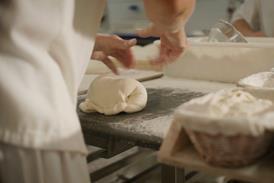

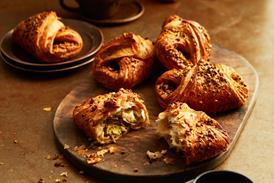
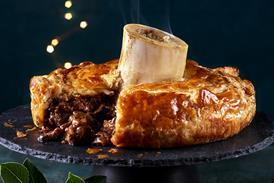
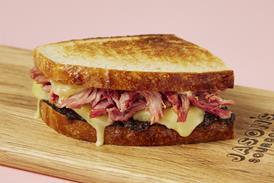


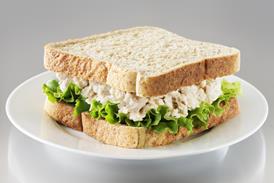


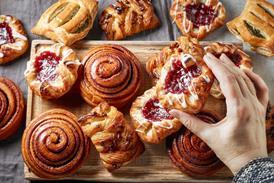
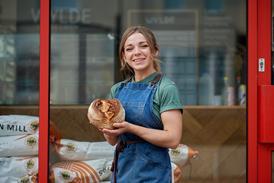
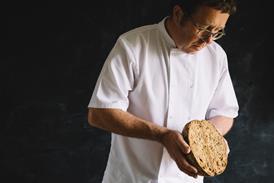



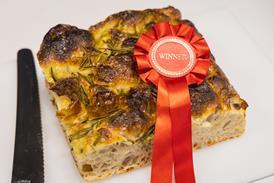







No comments yet